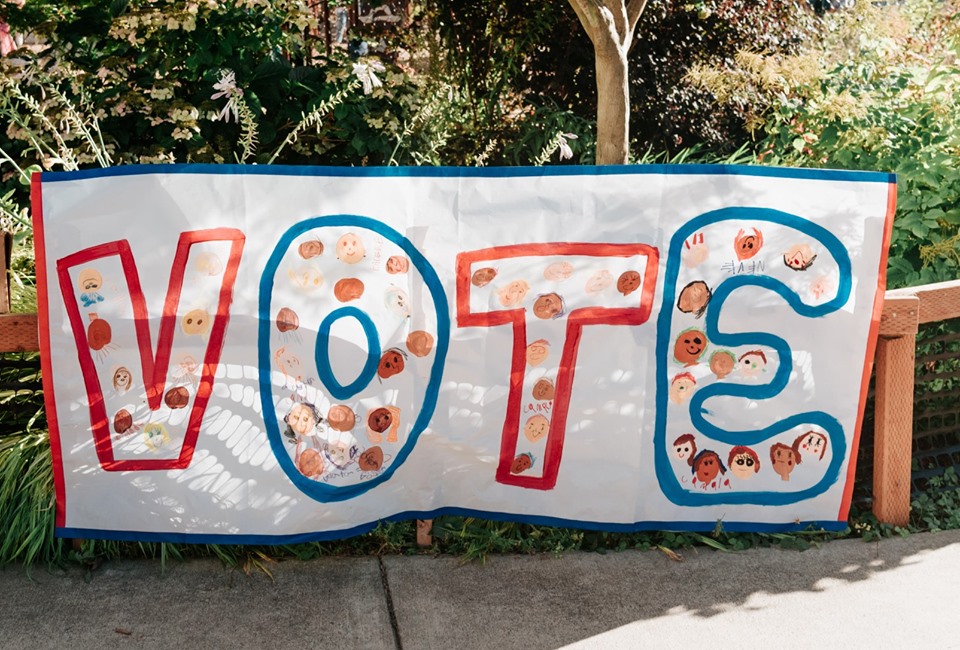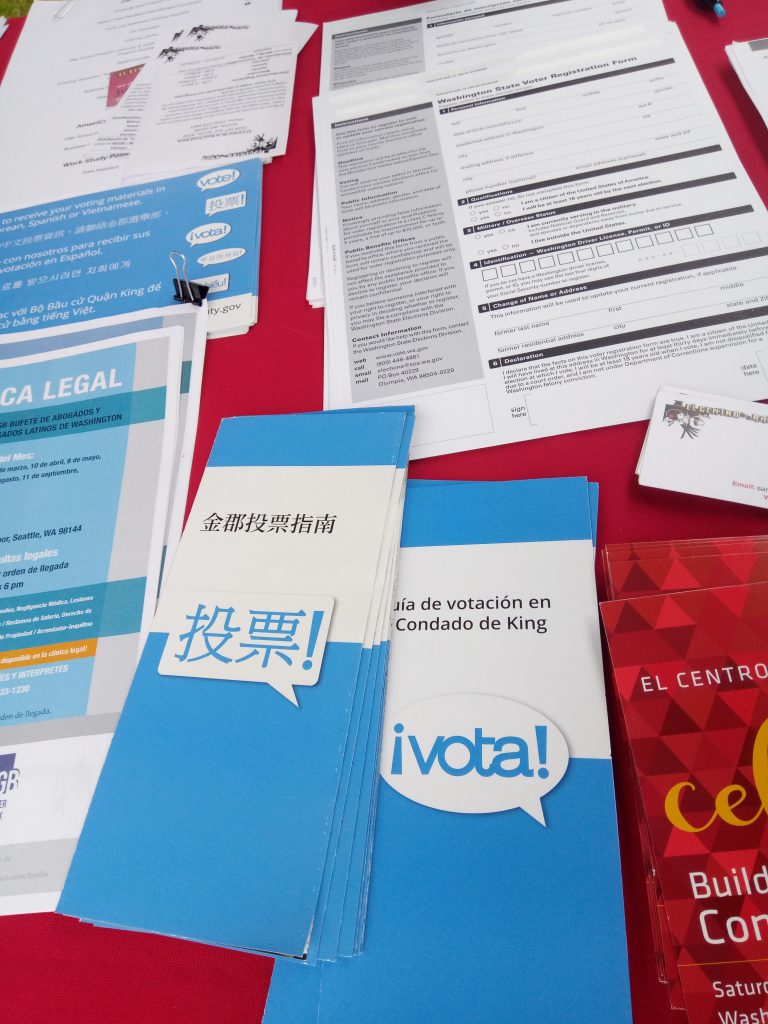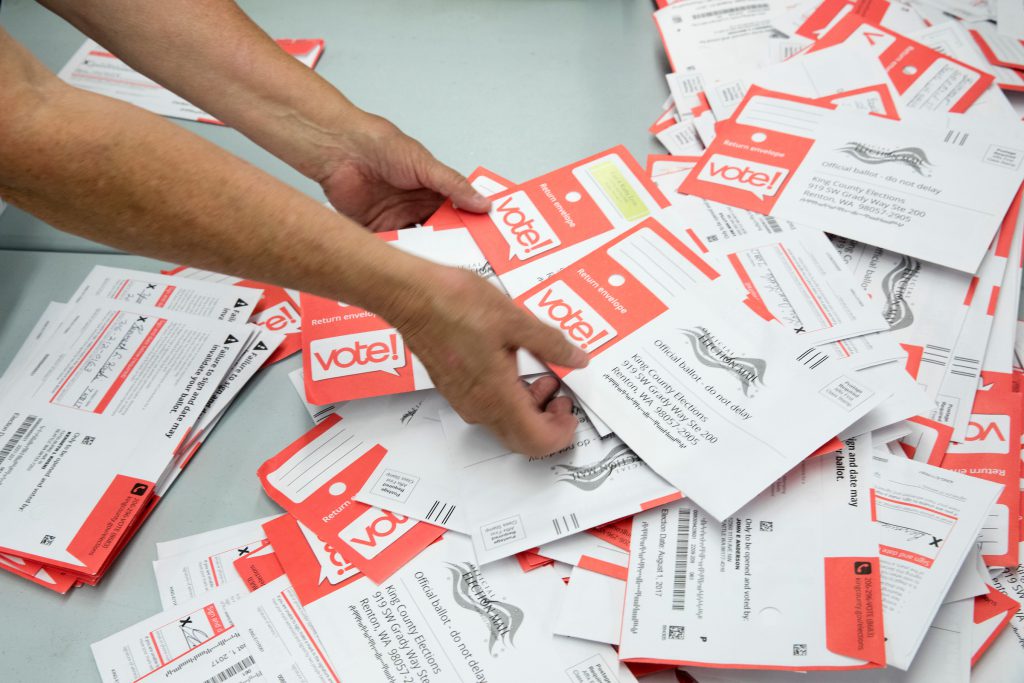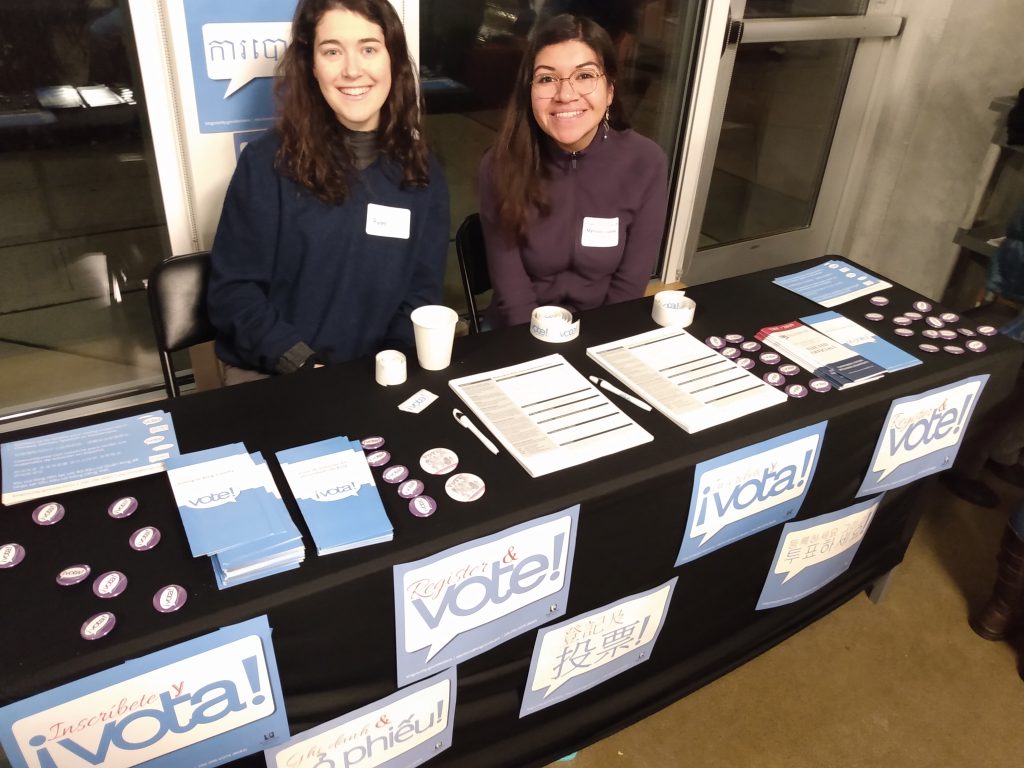Timeline changes:
The Census Bureau will end its field data collection by September 30 – one month earlier than planned – after being pressured by the current administration. This change was made to meet the December 31 deadline for transmitting the state population totals used for congressional apportionment to the president. This new date gives only six weeks for non-response follow up, making it a critical time to ensure our historically undercounted communities are represented in the Census. The self-response options will also close on that date. If you have not responded to the Census already, you must do so now by visiting https://my2020Census.gov/.
Non-Response Follow Up:
As of July 30, Census takers have started to visit households on the west side of the Cascades. Enumerators will begin visiting homes on the east side of the state on August 11. A Census taker knocks on your door to help you fill out the Census and maintain resources that already exist in your community. The interview is quick, easy, and vital to your neighborhood’s next ten years of resources.
For communities who are hesitant to open their doors to officials, the Census Bureau has published several ways to identify if someone is a Census taker or Census Bureau employee:
- The Census taker will present an ID badge that includes: their name, photograph, a Department of Commerce watermark, and expiration date.
- Census takers and field representatives conduct work only between 9 am and 9 pm, local time.
- They will have an official Census Bureau-issued device, such as laptops or smartphones, with the Census Bureau logo.
- A Census taker will never ask for your social security number or banking information.
- You can also enter the name of the Census taker in the Census Bureau Staff Search.
If you have questions about a Census taker’s identity, you
can call 844-330-2020 to speak with a Census Bureau representative.
Census Emails:
The Census Bureau recently announced that they would send emails out to residents who live in Census blocks with a 50% response rate or less. Previous messaging from the Census said that they would not contact individuals by email. However, due to the COVID-19 pandemic, the Census Bureau has adapted its outreach methods to ensure a complete, accurate count.
Recipients will receive emails from the email address 2020Census@subscriptions.Census.gov
that will invite them to respond to the Census online. Only households that
have given the Census Bureau or commercial list their contact information will
receive these email invitations. The Census Bureau is also considering sending
out text messages, though no decision has been announced.
The President and the Census:
On July 21, President Trump signed a memorandum to exclude undocumented immigrants from being counted for congressional apportionment. This proposal is unconstitutional as the 14th Amendment requires a count of “all persons” in the United States. The Justice Department, under both Democratic and Republican administrations, has confirmed that apportionment is based on the number of persons living in each state without regard to citizenship status.
The Pew Research Center estimates that if undocumented immigrants were excluded from apportionment, at least three states (California, Florida, and Texas) would lose a House seat. At least three lawsuits have been filed challenging the memorandum. The memorandum does not change which questions are asked on the Census or the protections that keep personally identifiable data for at least 72 years.
The president’s memorandum seeks to shift political representation away from places with large immigrant communities by defying the Census’ constitutional mandate to ensure that each state is represented in proportion to their population. Furthermore, the memorandum is an attempt to suppress Census participation and skew the congressional map, making it more critical than ever that marginalized communities, regardless of citizenship status, participate in the 2020 Census by September 30.
Cambios en la línea cronológica general:
La Oficina del Censo finalizará su recopilación de datos el 30 de septiembre, un mes antes de lo planeado – este resulta después de ser presionados por la administración actual. Este cambio se realizó en un intento por cumplir con la fecha límite del 31 de diciembre para transmitir los totales de la población estatal utilizados para el reparto del Congreso al presidente. Esta nueva fecha solo da seis semanas para el seguimiento sin respuesta, que es un momento crítico para garantizar que nuestras comunidades que históricamente menos contadas estén representadas en el Censo. Las opciones de auto-respuesta también se cerrarán en esa fecha. Si aún no ha respondido al Censo, debe hacerlo ahora visitando https://my2020Census.gov/.
Seguimiento sin respuesta:
A partir del 30 de julio, los encuestadores del censo han comenzado a visitar hogares en el lado oeste de las Cascadas. Los enumeradores comenzarán a visitar hogares en el lado este del estado el 11 de agosto. Un encuestador del censo llegara a su puerta para ayudarlo a completar el censo para mantener los recursos que ya existen en su comunidad. La entrevista es rápida, fácil y vital para los próximos diez años de recursos en su vecindario.
Para las
comunidades que dudan en abrir sus puertas a los funcionarios, la Oficina del
Censo ha publicado una lista de varias formas de identificar si alguien es un
empleado del Censo o empleado de la Oficina del Censo:
- El encuestador del censo presentará una credencial de identificación que incluye: su nombre, fotografía, una marca de agua del Departamento de Comercio y la fecha de vencimiento.
- Los encuestadores del censo y los representantes de campo realizan el trabajo solo entre las 9 am y las 9 pm, hora local.
- Tendrán un dispositivo oficial emitido por la Oficina del Censo, como una computadora portátil o un teléfono que tenga el logotipo de la Oficina del Censo.
- Un encuestador del Censo nunca le pedirá su número de seguro social o información bancaria.
- También puede ingresar el nombre del encuestador del censo en la Búsqueda de personal de la Oficina del Censo.
Si tiene
preguntas o dudas sobre la identidad de un encuestador del Censo, puede llamar
al 844-330-2020 para hablar con un representante de la Oficina del Censo
Correos electrónicos del censo:
La Oficina del Censo anunció recientemente que enviarían correos electrónicos a los residentes que viven en los bloques del Censo que tienen una tasa de respuesta del 50% o menos. Los mensajes anteriores del Censo decían que no contactarían a las personas por correo electrónico. Sin embargo, debido a la pandemia de COVID-19, la Oficina del Censo ha adaptado sus métodos de divulgación para garantizar un recuento completo y preciso.
Los
destinatarios recibirán correos electrónicos de la dirección de la cuenta 2020Census@subscriptions.Census.gov que los invitará a responder al Censo en
línea. Solo las familias que le hayan dado a la Oficina del Censo o a la lista
comercial su información de contacto recibirán estas invitaciones por correo
electrónico. La Oficina del Censo también está considerando enviar mensajes de
texto, aunque no se ha anunciado ninguna decisión.
El presidente y el censo:
El 21 de julio, el presidente Trump firmó un memorando para excluir a los inmigrantes indocumentados de ser contados para el reparto del Congreso. Esta propuesta es inconstitucional ya que la Enmienda 14 requiere un recuento de “todas las personas” que viven en los Estados Unidos. El Departamento de Justicia, bajo las administraciones demócratas y republicanas, ha confirmado que el reparto se basa en el número de personas que viven en cada estado sin tener en cuenta el estado de ciudadanía.
El
Pew Research Center estima que si los inmigrantes indocumentados fueran
excluidos del reparto, al menos tres estados (California, Florida y Texas)
perderían un asiento en la Cámara de los Representantes. Al menos tres demandas
han sido presentadas desafiando el memorándum.
El
memorando no cambia qué preguntas se hacen en el Censo o las protecciones que
mantienen los datos de identificación personal durante al menos 72 años. El
memorando del presidente busca desviar la representación política de lugares
con grandes comunidades de inmigrantes desafiando el mandato constitucional del
Censo para garantizar que cada estado esté representado en proporción a su
población. El memorándum es un intento de suprimir la participación en el Censo
y sesgar el mapa del Congreso. Con esto en mente, es más importante que nunca
que las comunidades marginadas, independientemente de su condición de
ciudadanía, participen en el Censo 2020.




